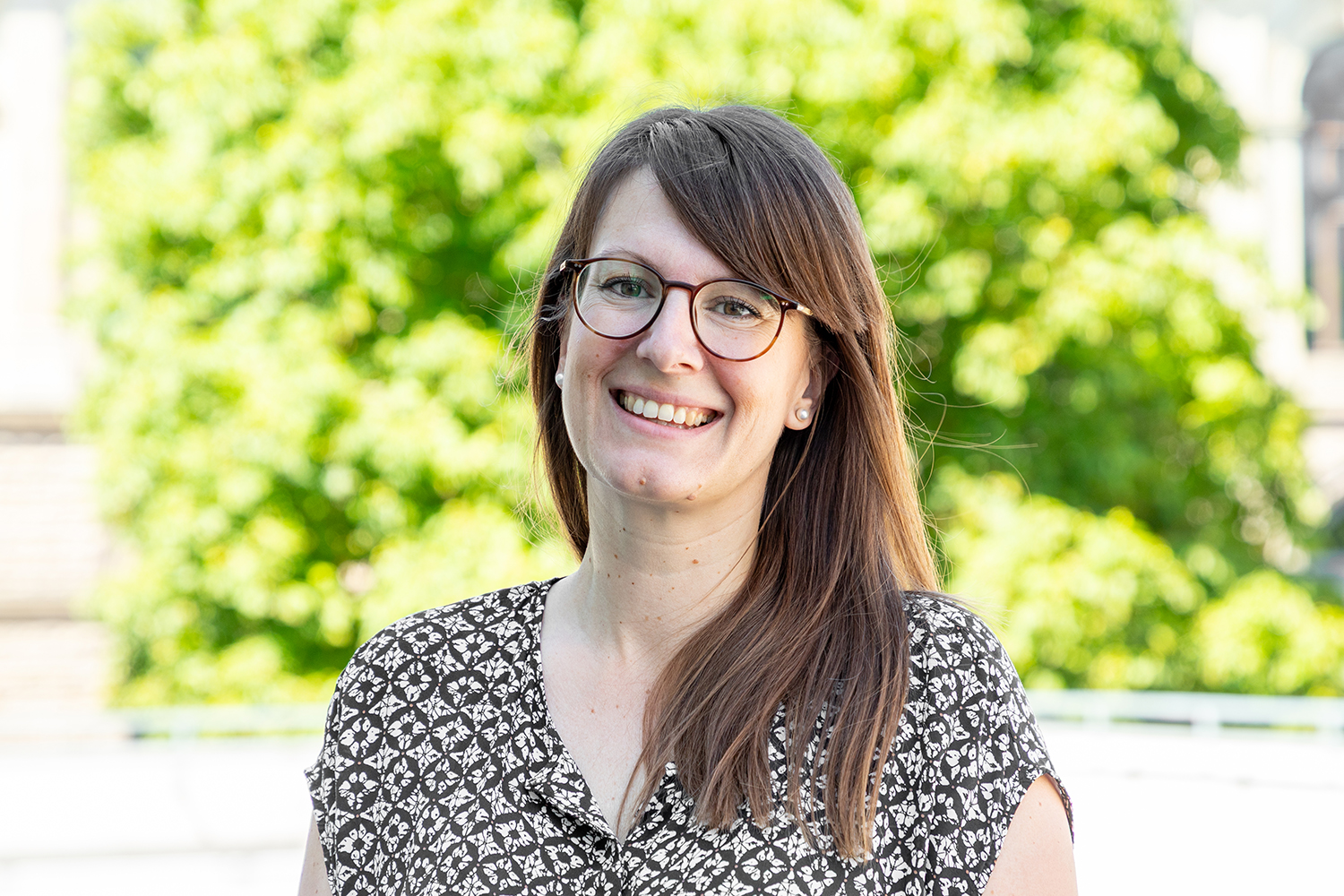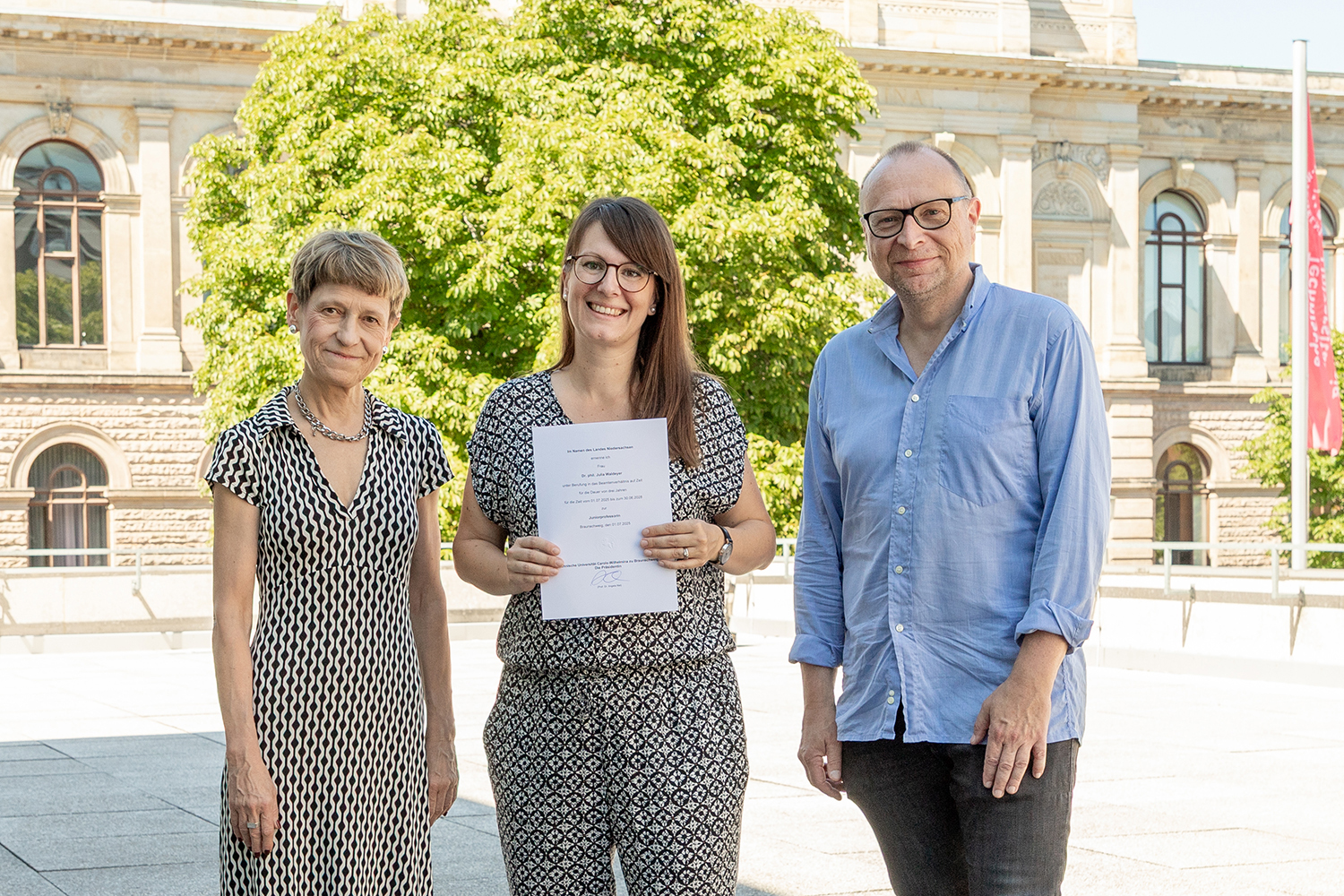How to learn more successfully Julia Waldeyer is the new junior professor of educational psychology
Whether it’s metacognition, resource management or digital learning, Professor Julia Waldeyer’s research focuses on how teaching and learning can be made more efficient, conscious and future-oriented. At Technische Universität Braunschweig, the professor of educational psychology wants to explore these topics in greater depth and provide new impetus. In this interview, she talks about how she came to teaching and learning psychology, which topics currently drive her, and her vision for the education of tomorrow.

Julia Waldeyer is the new junior professor at the Institute of Educational Psychology. Photo credits: Kristina Rottig/TU Braunschweig
Why did you choose TU Braunschweig?
I received the job advertisement for the professorship at what was for me an almost impossible time to apply from a respected former colleague from Bochum, who now also works at TU Braunschweig, and decided to apply at short notice. Looking back, it was a stroke of luck for me. What appealed to me and ultimately tipped the scales was how well the content of the position, the institute and the faculty matched my research and teaching profile. TU Braunschweig offers an attractive interdisciplinary and innovative environment with excellent opportunities for my research. From my very first contact with TU Braunschweig, I felt valued and supported. I am very much looking forward to continuing and expanding my work here.
What exactly do you do in your research? How would you explain your work to someone who is not familiar with the subject?
My research is mainly oriented towards instructional psychology and deals with processes of teaching and (self-regulated) learning in schools and universities. I focus primarily on three topics: the importance of resource management strategies for learning success (e.g. time management and effort), promoting metacognitive judgement accuracy, i.e. a learner’s self-assessment accuracy regarding their knowledge, and learning and teaching with the aid of digital technologies.
For people who are not immediately familiar with my work, I like to refer to (inter)national school performance studies such as the PISA study to spark an initial association. Even though I myself rarely work with this data, most people can relate to it and it gives us a starting point for conversation.

Professor Julia Waldeyer with TU President Prof. Angela Ittel and Professor Eckart Voigts, Vice Dean of the Faculty of Humanities and Education. Photo credits: Kristina Rottig/TU Braunschweig
What are the main areas of research and projects you will be working on at TU Braunschweig?
I am currently working on various projects related to the research areas described above, most of which I already started in Bochum and am now continuing. Among other things, I have begun working with national and international colleagues in various experiments to investigate how the accuracy of judgement of one’s own knowledge, but also that of other learners (so-called peer assessment), can be efficiently and effectively promoted in different learning contexts.
Also worth mentioning is a BMBF-funded joint project for the situational support of school authorities and their organisational cooperation partners in establishing an OER (Open Educational Resources)-friendly technical infrastructure for free learning and teaching materials, which I acquired as a co-applicant and which is to be continued in part at TU Braunschweig from 2026 onwards. Furthermore, I would like to incorporate future topics such as digitalisation and, in particular, extended realities more strongly into my research in order to develop effective and efficient technical-didactic design concepts and test them experimentally.
What motivated you to conduct research in this area?
I would say that I ‘grew into’ the topic: through my master’s degree with a focus on ‘learning’, my associated time as a student assistant in teaching and learning research in Bochum, my interest and growing enthusiasm even back then for empirical teaching and learning research, and ultimately through my doctoral studies in teaching and learning psychology in Essen as part of an interdisciplinary DFG research group, in which the topic of ‘learning’ once again played a significant role and from which research collaborations still exist today.
How would you describe your everyday work in three keywords?
Innovate, exchange, design (and inspire!).
